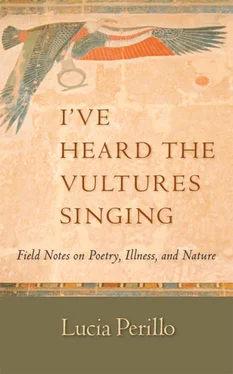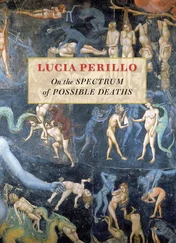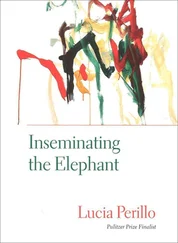In the end, she won because she got her wish not to ride the ferry: by the time we arrived, the boat had ceased operating for the day. Silently the six of us — or was it five? I don’t remember my older brother’s being present — rode back to the motel through the dead-flat countryside, with the air conditioning blasting and the Caddy’s windows rolled up while, outside, the grass blazed up with the teardrop-shapes of flames. My mother kept us in line throughout the year by suggesting, at the climax of our battles, that we might move to this place “A place that would be good for you children.” We thought it shared the desolation of the dust-bowl countryside that Bonnie and Clyde rode through, and the thought of living there shut us up real quick .
Though it was the male poets of the last midcentury who first started writing autobiographically, it was the women who got slapped with the confessional label, which has come to mean a large degree of self-absorption combined with poorly edited melodrama. If one were to get paranoid about this, it might seem that the term confessional poetry was coined so that any eruptions coming from female quarters could be squelched. Sylvia Plath and Anne Sexton get singled out as the gun molls of the autobiographical/confessional gang, which has pretty much lost its male leaders, its Clydes — who ride now in a more luxury-class automobile of their own. Both Plath and Sexton were, however, influenced by Robert Lowell, who would make a very good Clyde indeed.
But Plath is not really a poet of social rebellion. She dons the roles of wife and mother willingly enough; although, granted, her take on these functions is peculiar, she doesn’t necessarily resist them, except perhaps in her uncharacteristic poem “The Applicant,” where a woman interviewing for the role of wife is instructed to wear a rubber crotch.
It is Sexton’s poem “Her Kind” that ought to serve as a capsule of the feminist upheavals that were about to follow in the poem’s wake (it was published in 1960). This is the early, formal, disciplined Sexton, and I have felt wronged by seeing it drop from the Norton Anthology of Poetry as Sexton’s stock has fallen, perhaps because of the autobiographical Sexton’s showboat qualities, which adhered to her poetry as her life burned on despite her attempts to extinguish it. In contrast to this aggrandized persona, the witch in the cart is archetypal:
I have gone out, a possessed witch,
haunting the black air, braver at night;
dreaming evil, I have done my hitch
over the plain houses, light by light:
lonely thing, twelve-fingered, out of mind.
A woman like that is not a woman, quite.
I have been her kind.
That’s the first stanza of the poem, perhaps a simplistic encapsulation of the isolation that many women felt in the suburbs after the Second World War (capsules need to be short and tart if they’re to be carried around in the back of the brain). The poem puts its finger on the idea of dreaming evil , the primary operation of the female poet’s outlaw fantasy life, a fantasy that served, in Sexton’s case, as retaliation against life in the postwar suburbs.
In my observation, this fantasy past is created most often now by women who have chickened out on, or are recuperating from, our chance to hop in the car, and have instead become librarians and professors and schoolteachers and — oh worst — happy wives. In fact, we do not drink and fumble around in coatrooms with men, if we ever did at all, though we harbor the illusion that we did, along with the wish that we still lived in the days pre-AIDS, pre-hepatitis C and human papilloma virus and meth and crack and tweakers, in that narrow window of time — the 1970s I guess — when a lot of bad behavior was suddenly (thanks to the pill and penicillin) consequence-less. Fumbling around in coatrooms now comes off as merely self-indulgent, plus hetero-sexuality itself is a bit passé.
But the tradition of the female poet outlaw goes way back, as far back as Queen Elizabeth, who wrote, in 1589, a poem about how she wanted to chop off the head of her rival, Mary Queen of Scots. And even before this, in 1546, Anne Askew, who was arrested for heresy, wrote a poem that maintained her innocence and was burned at the stake for it. Rebellion is bad enough, but writing a poem about it doubles the crime. A poem is by its nature a public utterance, no matter how reticent the author, and to write one has always been an audacious act for women, especially when their poetry concerned extramarital love and civil war. So it makes sense that an audacious alter ego would have been created from the get-go, to carry the poem on its huge shoulders.
Later, among British poets, we get Aphra Behn’s mid-seventeenth-century take on male impotency and women making love with women, and the globetrotting mega-outlaw (ditcher of husbands, taker of lovers, and introducer of smallpox vaccine to England) Lady Mary Wortley Montagu and her 1734 retort to her nemesis Jonathan Swift, in which she — speaking with the voice of a libertine persona who feels wronged by his inability to perform sexually — tells him that his poems will “furnish paper when I shite.”
Now, in this moment: I pull poetry books down from my shelves until I assemble a big stack written by my more-or-less peers. Together we write this poem I call “Bonnie Without Clyde”:
I copped a.22 snugged in a black clutch bag,
an ordinary woman who could rise
in flame.
God I was innocent then, clean as a beast in the streets,
revved up on coffee, cigarettes, alcohol, the sound of my
own voice.
It was almost biblical, driving the midnight burning
highway
to a domed metal diner with seven red stools
where the shadow pimps go hey princess
(my mother’s mouth still saying Slut).
People are afraid of keeping secrets between their legs
(I will be your naked doctor girl).
Those men I fucked when I was drunk: memory is a little museum of miscalculation and haste.*
These lyric confession-outpourings are generally culled from the arenas of sex and crime, often related to drugs. But the mood that my Bonnies want to brew comes from Faye Dunaway’s 1930s component, pre-dating the rock-and-roll music that would complete the famous trinity. The soundtrack of these poems would more appropriately be jazz, preferably performed by a tragic addict like Billie Holiday. For sure my Bonnies would not choose the movie’s twangy bluegrass soundtrack.
Here is my crime confession: I once was a shoplifter of meat. Having been caught smoking pot by the women’s dormitory resident (in Canada, these older students were called wardens), my friends and I announced that we could not be thrown out because we were leaving, ha! The next day we found an apartment on a down-at-the-heels block of downtown Montreal, a city that barely functioned with all the chaos caused by the French separatist movement of the times .
“ Steinberg’s” was the name of the grocery, and because we girls were poor — no, only pretend poor, it being part of the outlaw fantasy that we were not bred from the upper middle class — we felt as if we were being shadowed by a holy ghost who would both protect us from arrest and absolve the crime. It seemed outlandish that a person could get into trouble for stealing food (you see: I was such a dope I didn’t even know about Les Misérables, whose plot is set in motion by the theft of a baguette ).
I was not a member of the shopping expedition the week my roommates did get caught, one of them a basketball player who easily outran the store guard (since when had Steinberg’s acquired guards?). The other captured roommate had a baby face and gave the guard the phone number of our apartment, where one of us pretended to be her mother. After being reprimanded, she was released. That night at dinner, buzzing with adrenaline, we all ate a celebratory roast that came out of the basketball player’s purse .
Читать дальше











![Various - Birds and Nature, Vol. 12 No. 5 [December 1902]](/books/745517/various-birds-and-nature-vol-12-no-5-december-thumb.webp)
![Various - Birds and Nature Vol. 11 No. 2 [February 1902]](/books/745533/various-birds-and-nature-vol-11-no-2-february-1-thumb.webp)